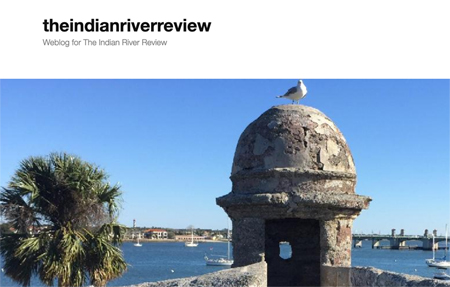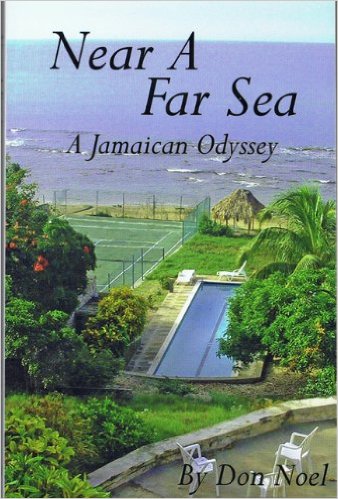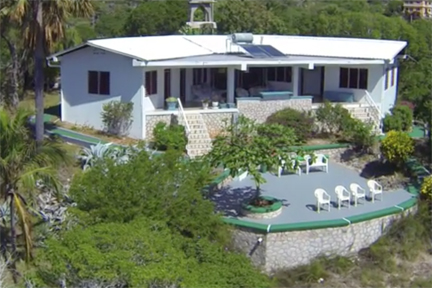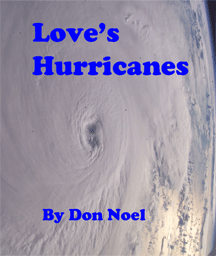Published by Indian River Review in April 2015
The path through the brush-thick meadow disappeared into a tangle of alder and willow. Jupiter was a growing pinpoint in a fading northern evening; the Madison River clamored unseen down its stony bed only a few yards away. Tom was tired after a day on that river.
Fishing well demands concentration, forcing out of mind workaday problems, stifling distractions, recollections, ruminations. This was where he had waited, four decades ago, for a bride-to-be who never came. He had managed not to think of her all day. This evening, ambivalent about poking up the embers of memory, he had almost stayed at the camper. Perhaps should have. He was about to give up for the day when the park ranger materialized, beckoning from a dark patch in the thicket. “Can I help you, mister?”
The khaki shirt and slacks hardly hid a well-sculpted figure, although she seemed young. Her face in the waning light, punctuated by emphatic dark eyebrows, looked almost ivory, framed by thick ebony hair pulled back into a ponytail or braid behind the hat. He looked over his shoulder, thinking she must mean someone behind him.
“I’ll show you the trail.”
“Hello! That’s kind of you.” He worked his way through the brush.
“Where are you headed?”
“Hoped to get a glimpse of the landslide.”
“You must have seen it from the highway.”
“Yes, but ‘way back when it happened, I could see it from here.” The state of Montana had done a job on the campground behind him. Toilets, RV hookups, fireplaces, picnic tables, a ranger station. Unrecognizable from the time he’d camped here, a bridegroom’s yearning overcoming the discomfort of tenting on hard ground. Four decades’ downstream growth had now obscured the arresting scene that greeted him that dawn: an entire mountain sheared off. “I thought there’d be a way to the edge of the lake.”
“There is, but it’s not much of a trail. Come on, I’ll show you.” She turned, and he followed her through the thicket. Most likely a mule-deer trail: Every branch beyond the height of a deer’s rack slapped at him, dislodging the safari hat that covered his thinning hair and threatening his glasses.
She was as agile and light-footed as a deer herself. Or a ballerina, threading gracefully through the copse. The hair, he now saw, was in a braid down almost to the small of her back. Her khaki slacks were of some stretch material.
He stumbled. She turned: “You all right, mister?”
Her face seemed somehow familiar. Maybe a young woman he’d seen recently on the news: a Miss World contestant, Ramona something? He felt vulnerable to youth. Not for the first time, he wished he had kept a photo of the girl he’d waited for here; her face had by now faded in memory like a Cheshire cat.
“I’m going too fast for you.”
“No, not really. I’m okay. But is there somewhere we can get out to the river’s edge? Get a look downstream to the lake?”
*
Which was why he’d come, daring to revive memories, hoping his twin pastimes of fishing and geology would inure him.
This land once lay in a shallow sea, accumulating a shifting river’s detritus that, as sea levels rose and fell, hardened to shale, sandstone, limestone. Some tectonic event heaved those sedimentaries up, tilted steeply. Over centuries a few stubborn trees poked through, their roots not nearly deep enough to bolt the rock layers together. A river with no one to name it began grinding its way down to become the Madison.
Then, an eon later, the 1959 earthquake shattered those layers loose and heaved them down to dam the river into Quake Lake.
TV accounts of rivers rising behind massive rockslides in China had reminded him. The human scale was different, of course: The Chinese evacuated whole cities lest earthquake-made dams burst from the pressure of lakes rising behind them, sending tsunamis of death downstream. This Montana dam cost a handful of lives, but was soon stabilized. Even if it gave way now, it would spread a shallow wave harmlessly across the wide valley floor downstream, at worst threatening a few hundred cattle grazing on sparse grass and sagebrush.
He had been roused from sleep that long-ago night, thinking at first that she’d come, his Juliet playfully shaking the tent to waken her Romeo. Even feeling the ground roll beneath him, he thought only of his awaited love — until an ear-splitting roar brought him fully awake. He and a few other fishermen-campers came into the night, could see nothing, and finally went back to puzzled sleep.
He never saw the lake itself; it would fill slowly. At dawn he wakened to see half of Sheep Mountain sheared off as though split with an axe, a thousand feet of mountainside disintegrated into the canyon narrows. By then, emergency crews had arrived. A few came up to check on the campsite, saw that it was intact, and went back to the scene of the disaster to wait for earthmoving equipment.
The quake punctuated two days’ growing despair that she wouldn’t join him. They were to spend a week here, find a justice of the peace in Ennis to make it legal and then go build a new life together, far from their Midwest home. He waited half a week more. Tried to fish, although no trout rose in the quake-roiled river. Tied flies. Pried at rock outcrops for crystals or gemstones.
At last, sure she would not come, he burned the photographs. Cremated them, one by one, in the final night’s glowing coals. His hand hesitated involuntarily with the last, the two of them smiling raptly into a Technicolor world. He willed the hand to consign it to the flames. It curled into blaze and then died into the other ashes, the incineration seared into memory, regretted, replayed in dreams even as the image itself blurred.
When he struck camp, the impoundment of the urgent river into a placid lake had only begun. Driving out, he had to navigate newly-bulldozed bypasses around blocks of roadway that the earthquake had heaved apart. Hope flickered: Perhaps she had tried to reach him and been unable. He found a working pay phone to call her parents. They had heard nothing from her, angrily assuming their daughter had run away to him, and hung up on him.
She had run away, but from him, gone somewhere to build a new life by herself. So he did, too. Not easily: She never entirely left his mind. He dropped out of college, drank too much, got a deckhand’s job on a tramp steamer plying the Inside Passage to Alaska. There, islands and fjord-coves and glaciers revived his passion for geology and drove him back. He added mathematics to his studies, became an accountant, filling a lifetime’s bachelor leisure by fishing every fabled stream in the country while visiting all the nation’s geologic monuments: the Delaware Water Gap, Grand Canyon, the High Sierra, the Grand Tetons.
Now on impulse he’d packed his fly rods, flown to Helena, rented an RV and come back for the first time to the Madison. It was early in the season, and colder than he’d expected. At a visitor’s center just above the dam of massive rocks, simple headstones commemorated the twenty-eight people who died. Tomorrow, perhaps, he would go back there. But this evening, he wanted to see the avalanche from his first vantage point, to hold the present reality against a sepia remembrance of that first morning.
*
“Sure, mister. Not as good a path, and not much river’s edge when we get there, but let’s try.”
“Thanks,” he said. “But not ‘mister’, please. I’m Tom.”
“Okay, Tom. I’m Julie. Follow me.”
She was right; there was hardly a dry rock to stand on when they got out to the river, and they weren’t far enough downstream to match the view in his mind’s eye.
“You’ve been fishing?”
“I have. A good day, but a little tiring.”
“You were out in waders?”
“Not too far out.” The Madison had a reputation. He could no longer wade out thigh-deep in that battering current; even knee-deep took something out of his legs.
“You must have a good cast, then.”
“Arm still strong, I guess.” The trick was to search out pockets of still water behind rocks, eddy-pools in which the big trout lazed, waiting for the river to bring their next meal. Then to decide what was hatching, find the right fly, put one on a filament leader and offer it.
“Caddisflies were hatching today?”
“Exactly. I had a couple of nymphs that worked.”
Her gaze shifted up to his wire-rimmed glasses. “You can see up close well enough to tie your own?”
He nodded. “Near-sighted, in fact. These are for distance.” Why was he giving this stranger such personal details? “They’re on a string so when I’m out there I don’t sacrifice them to the river to put on a new fly.”
“I’ll bet you’re good at it.”
“Caught a dozen.”
Cast back and forth just once or twice to get enough line out, a glinting swirl in the sunlight; then release it, the fly floating out of the sky on its gossamer thread, landing breathlessly as a butterfly on the surface of a big lunker’s lair in the lee of a river rock. It could float there only milliseconds before the river caught the line and snatched the fly away, but with skill and luck the trout would rise in that instant, giving him an exhilarating fight with a leaping rainbow.
“You let ‘em go, I hope.” A stern ranger’s reminder. “It’s catch-and-release on this section of the river.”
“I know,” he grinned. “They’re all back out there, waiting to play with the next fisherman.”
“Good.” She smiled back. “This the view you wanted?”
“Not exactly.” He could not see the fault line, the still-raw slab left when eighty million tons of dolomite thundered down, liquefying into gravel that transported huge boulders, a wave whose leading edge surged halfway up the other side of the canyon.
“If you’re wanting to see the slide, there’s a better spot a quarter-mile farther down.”
“I thought maybe so.”
“But we couldn’t get there and back before full dark,” she said. “You staying another day? We could get an earlier start tomorrow.”
“That would be great.” He hesitated, looking down, conscious of his age and her youth. “Say, I’ve got a camper up in the grounds, and a bottle of Glenfiddich. We could have a drink, and then I could give you a lift home.” He looked up at that young, vibrant face. “If you’re old enough to have a drink.”
“Tom, is it? That’s funny, Tom. Flattering. Old enough? Yes, and then some. I’ll take a pass on the Scotch; I’m not off until eight. But I’ll take a moment to warm up at your campfire before calling it a day.”
“It’s gotten chilly.”
“It has,” she said. “We need a chinook.”
A Northwest phenomenon. A foehn wind, properly: a bubble of warm air from the Pacific that can raise temperatures by thirty degrees in a few hours. He remembered a watercolor sketch by the cowboy painter Charles Russell, a gaunt steer mired alone in deep snow: Waiting for a Chinook. “Not likely tonight,” he said. “A good fire seems a better bet.”
“I’ll lead us out of this thicket.”
He revived the campfire with an armload of pine, fragrant of lodgepole resin, and added more until the campsite glowed amber. She settled on her heels, rubbing outstretched hands into the warmth. He eased onto his haunches next to her, painfully aware of the contrast with her easy grace. He felt himself roused. Unimaginable thoughts crowded in: Persephone to his aging Hades. “Change your mind about the Scotch?”
“Still no, thanks.” She stood and turned to warm her back, her slender shadow flickering against the wall of the camper. Ravishing. “That’s nice, Tom,” she said over a shoulder, and turned. “Just right. I’m afraid you’ve used every stick of your wood, though.”
“I have more in the camper, and there’s more up at the lodge. I’ll get some.”
“No, I’m toasted.”
“Stay a little longer, though?”
“Thanks, but I’ll get along now.”
“I’ll take you.”
“It’s not far, and I know the way. I’ll look for you tomorrow afternoon. But a bit earlier, all right?” She stepped out of the firelight and disappeared.
Cupping his hands, he called into the dark. “Good night! Tomorrow!” He went into the camper for more wood and the Scotch she’d declined, and pulled a camp chair to the fire. How did the park service enlist so pretty a girl? He caught himself wondering if she kept the light on when she undressed in her ranger’s cabin. A new, tectonic shift of thought; he was not given to fervid imaginings. Her silhouette in the firelight lingered in his imagination, and he wished for the thousandth time that he had not destroyed the image of another girl who might have warmed him on such a chill Montana night forty years ago. At last, the fire reduced to ashes, he went into the camper, and fell asleep to unaccustomed dreams.
The next day’s fishing was just okay. Fishing well demands focus, and he couldn’t settle into the absorption that blots out thought. When fatigued legs made him less steady, he quit early, peeling off damp waders for dry socks and boots, stretching his lanky frame on a camp chair, trying to warm in the still-chilly sunlight, savoring a Scotch and the sound of the ceaseless river. He was afraid she might not come. Afraid she would. He ate a ham-and-cheese sandwich. At last, as the sun morphed into an orange orb nearing the horizon, he set out toward the thicket.
She was waiting. “Hi, Tom.”
“Hi, Julie. Have I kept you waiting?”
“Only a few minutes. Let’s go.” She led down the deer path, looking over her shoulder occasionally to be sure he was keeping up this time. She hardly needed to look: He crashed through the brush like a Mack truck. She was as silent as an Indian scout. Perhaps Indian, with that coal-black hair. The thought came to him that if the trail widened he might catch up and take her hand.
Then they were in the clear, on a narrow shelf of river-cast gravel, looking at dark water two hundred feet deep, canyon-trapped by the rock dam, the remains of Sheep Mountain from here looking more cliff than slope.
“Just what I came to see. Thank you.” She stood beside him, eyes fixed like his on the broken landscape now mirrored duskily in the lake. He took her hand; she did not object. “What led you to beckon to me last night?”
“I knew you were interested in the quake.”
“What do you mean, you knew?”
“Just sensed it. A shared connection, souls in harmony, maybe?” She gave him a golden smile out of that jet-black halo.
“How long have you lived here?”
“That’s hard to say.”
“Oh, come on! You afraid I’ll figure out your age? Really, now, how long have you been here?”
“Oh, that’s different.” A pause. “I came just before the quake.”
The impossibility did not register immediately. “So you felt it, too? Heard it?”
“Oh, yes. The shaking first. Then like the ground had turned to water. Then a rumble as the stone began to slide. A roar. Deafening. Then silence.”
He thought back. “There were people camped by the river.”
“There were. Most of the RVs were swept up the opposite hillside like surfboards. A few people in really sturdy campers lived to tell about it. Most were thrown out, engulfed in the rubble. The way skiers are buried in an avalanche, I guess.”
“But there were some in tents?”
“They never had a chance. Men came with power shovels and clawed for the bodies of the people who’d been swept halfway up. There was no way to get those at the very bottom.”
“I stopped at the visitors’ center on my way in,” he said. “A nice memorial, the headstones just beyond where the rockslide stopped climbing, I guess. Twenty-eight souls.”
“Twenty-nine, actually.”
“I must have miscounted. They’re all buried there?”
“Oh no, those aren’t real graves. The bodies that could be found were buried at home, wherever that was. And there must be headstones over empty tombs all around the country, the ones never dug out. All the names they knew about are on those headstones.”
“All they knew about?”
“Well, suppose someone was alone. Arrived after dark, say, and pitched a tent without signing in or talking to anyone. Everyone else asleep by then.
“But someone would surely miss him, figure out that he must have been there!”
“Suppose that late-night arrival was a runaway. From home, say. Headed into a new life, but scared. Wanting to sleep on it before taking that final step.”
It had grown dark. Jupiter was joined now by a dozen early stars. The steep flanks of Sheep Mountain were etched dark against a sienna sky that shimmered and faded in the lake. The air had grown chill, perfumed by acrid sagebrush and willow. Upstream a hundred yards, the rumble of the Madison River down its rocky bed was a pale echo of the thundering cataclysm four decades ago. At their feet, the river’s tumult stilled into the lake, bringing to mind the awesome silence outside his tent when that earthquake had finished.
“If her name were added to the others, she could rest?”
“Yes.”
“I’ll do it. By God, I’ll do it tomorrow.”
The air changed. A warm breath from their backs. He turned to her, a wraith-like, girlish figure stopped in time. His Julie.
“The chinook,” she said. “Thank you, Tom.” She kissed him on the lips, mist-light, and was gone.
-End-





